Isaiah Jackson is electric. I'm not talking about the warm glow of a hipster Edison bulb – IJax is a downed power line. Out of control, possibly calamitous, but capable of a surging brilliance that won't allow you to look away.
With the smallest twitch of his wiry frame he can rise, stretch, swat and slam your jaw to the floor. A millisecond after landing he can ricochet up and do it again. He can float and detonate simultaneously. He's a feather with a 7'2 wingspan and hydraulics. He's a nuclear powered paper airplane. What on earth am I talking about? Your guess is as good as mine but such is the delirious chaos of the Isaiah Jackson experience.
ISAIAH JACKSON‼️‼️
— Hammer DAHN (@HammerDAHN) February 3, 2023
pic.twitter.com/lMEz7mmmX5
Of course life is all about balance. Yin and yang. And while Jackson is often amazing, he's also very frustrating. For every highlight, he'll do something truly head scratching. If only he could harness the good and cut out the mental lapses he might get the consistent minutes he needs to develop. At the very least we could quit mentioning him in the same breath as cats and laser pointers.
But enough with the abstract, let's get into the weeds on the sometimes delightful, often maddening season Jackson turned in this year.
A Defined Role
Coming into the year it was fair to wonder whether Jackson would get significant playing time at the four position. Although he played all of his rookie minutes at center, the Pacers had (have) a glaring lack of forwards on the roster. A nimble athlete at 6'9, Jackson certainly has the physical profile of a modern power forward. I, for one, was tantalized by the flashes of a jump shot and his raw athleticism and hoped that if he came into the season with improved shooting and perimeter defending, he'd alleviate the log jam at the 5.
Unfortunately, that did not come to fruition and Jackson's role seemed to become even more narrowly defined than it was his rookie year. Compare his shot charts from both seasons. Last year he experimented facing up from different spots on the floor. This year his mandate was clear: score in the paint.
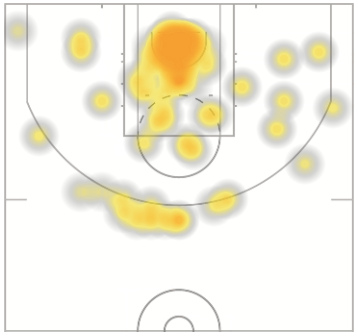
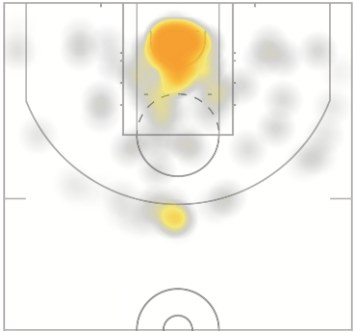
Inconsistent Minutes
The side effect of only playing the five is that he was unable to carve out a consistent role in the rotation. Once Jalen Smith was relegated from the starting lineup, a three-way competition for backup center minutes emerged between Jackson, Smith, and Goga Bitadze (while he remained on the roster).
The coaching staff was seemingly waiting for one player to definitively claim the role, a feat that never came to pass. Instead, Jackson and Smith ended up alternating games, playing one night and sitting the next. While the irregular playing time appeared to prevent both players from finding a rhythm, Jackson credits the experience with making them mentally stronger. Calling it a "welcome to the league moment," he believes that they learned how to stay prepared while on the bench, something that counterintuitively helped build their self-confidence.
A factoid that underscores Jackson's lack of consistent minutes is that of all the lineups he was a part of this season, the one that logged the most possessions together contained Jordan Nwora, a player who wasn't on the roster until February.
The Flashes of Brilliance
The things Jackson does well involve jumping: dunks, blocks, and offensive rebounding.
Jackson's role on offense was essentially to set screens and catch lobs. Of the shot types categorized by NBA tracking stats, the Alley Oop was Jackson's fourth most attempted shot. He greatly benefitted from playing with capable passers in Nembhard, McConnell and Haliburton, who set up the vast majority of Jackson's buckets this season. A special chemistry developed with Nembhard, who often used herky-jerky penetration to freeze the opposing rim protector before tossing a lob over the top to Jackson. Assists from Nembhard accounted for over 1/4 of Jacksons total makes on the season.

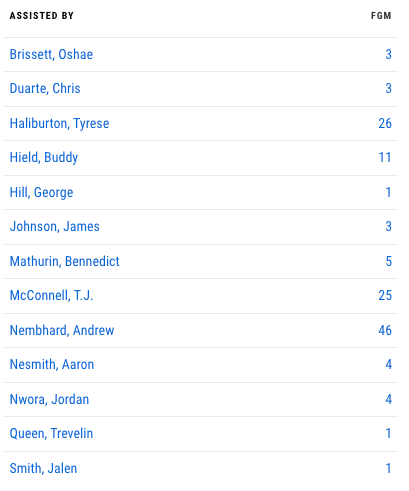
Jackson's leaping ability also helped him on the offensive glass. With him on the floor, the Pacers saw their offensive rebound rate increase by 6.4%, a differential that puts Jackson in the 95th percentile among bigs. While this speaks to his athleticism, motor, and reach, it also speaks to the Pacers' rebounding deficiency.
On the other end of the floor, Jackson put up some remarkable block numbers. Despite ranking 259th in minutes played, he ranked 16th in the league in total blocks, only two behind three-time DPOY winner Rudy Gobert. Jackson blocked 4.5% of opposing teams' shots while he was on the floor, good for 4th in the league among bigs who played at least 500 mins.
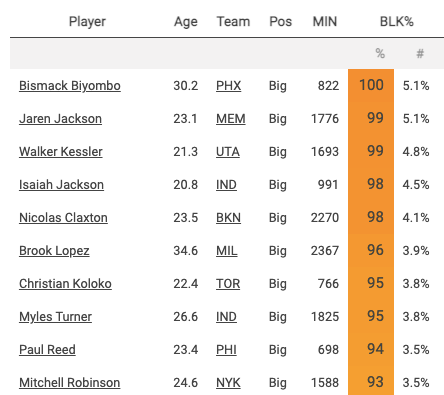
In fact, when you get into Jackson's advanced numbers, there's a lot to be optimistic about. Per 36 minutes, Jackson averaged 15.7 points, 9.7 rebounds and 3.2 blocks. His offensive efficiency might have been middling, but he still filled up the stat sheet when given the opportunity to play. Take a gander at the trends of his Game Score (a metric created by John Hollinger that uses all aspects of a box score to determine a player's impact) vs. his Minutes Played. It's somewhat expected that a box-score based stat would be correlated with minutes played, but I think it also speaks to the fact that when given consistent minutes, Jackson can deliver.
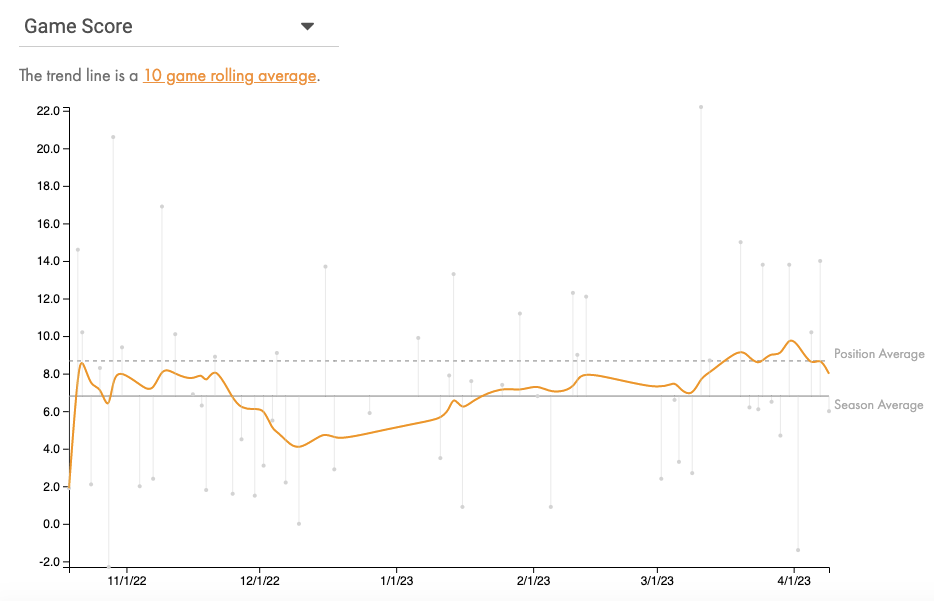
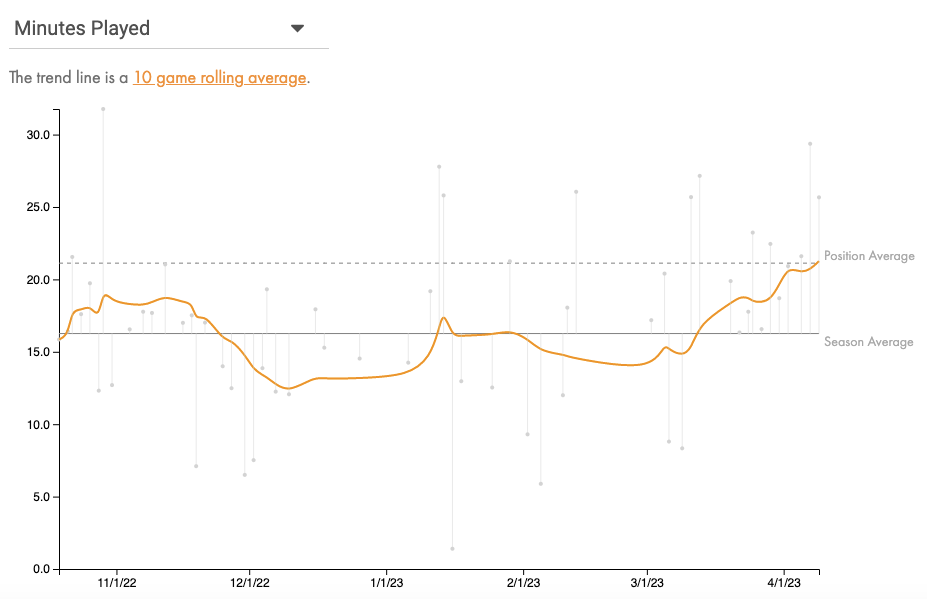
The Bad and the Ugly
Much of what makes Jackson exciting is what makes him frustrating. For example, his superlative block numbers and his offensive rebounding ability would lead you to believe that he's a positive defender and rebounder. However, the team gave up more points and offensive rebounds with him on the court than with him off of it.
It comes down to a lack of discipline. He has too many mental lapses, chasing blocks and steals instead of staying in position. This also causes him to foul too much. His rookie year, foul trouble was crippling for Jackson, as he got a whistle on about 6% of his team's plays. It was a major focus of his offseason development and, to his credit, he brought it down to 5% this year. While that's better, it still puts him in the bottom 20% of the league among bigs. He needs to bring his foul rate down to 3-4% to be in line with DPOY candidates like Mobley, JJJ, and Lopez.
In his exit interview, Jackson acknowledged that he relies on his jumping ability too much. He knows that to be a good defensive big in the league he has to be able to guard the perimeter. The coaches have challenged him to get better at staying low in his defensive stance and moving his feet. There's no question that he has the athleticism to do it, the only question is whether he has the discipline.
He also needs to get stronger. While he'll always be skinny, his lack of muscle is contributes to his defensive rebounding struggles. On the offensive end, it hampers his ability to finish contested shots at the rim. Despite shooting so many shots deep inside, his effective field goal percentage is a below-average 57.3%.
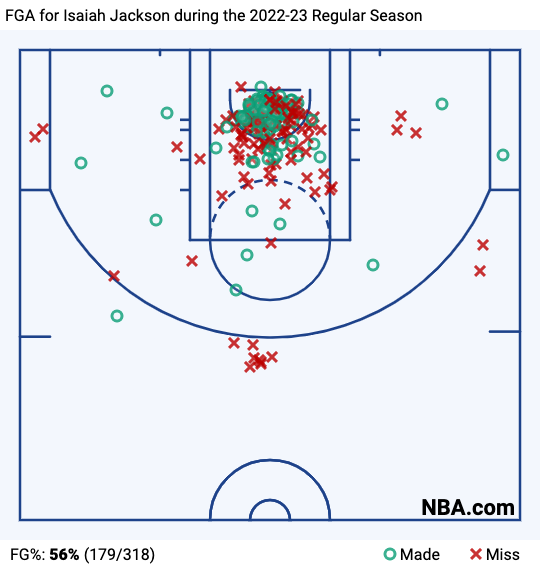
Right now he's a liability doing anything other than catching and finishing. He claims that he's been working individually on shooting, ball handling, and passing with the hope of showcasing those abilities next year. Although that sounds nice, I'm not optimistic that he'll ever be more than a play finisher.
As Caitlin Cooper suggested, one of the biggest changes he can make is not overcomplicating the simple stuff. That and adding a reliable jump shot would do wonders for his game.
Check out his end of season interview and tell me what you think the future holds for Jackson in the comments.
Subscribe to our email newsletter and unlock access to members-only content and exclusive updates.
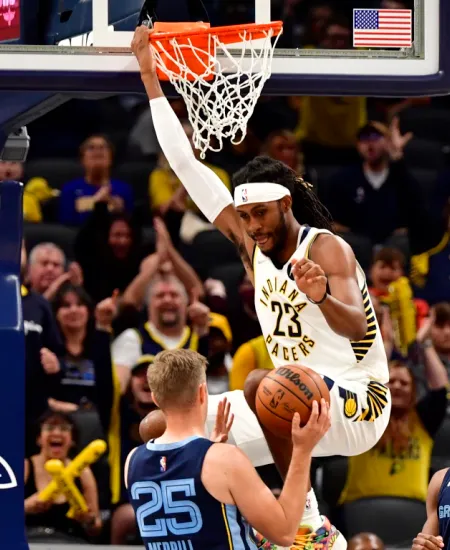
Comments